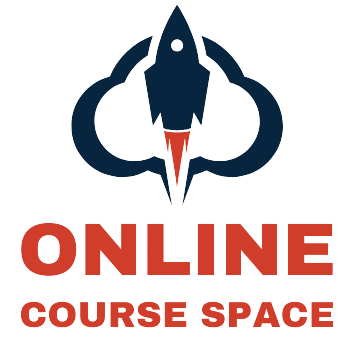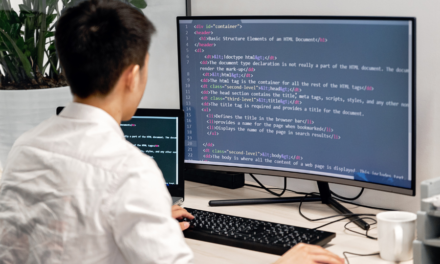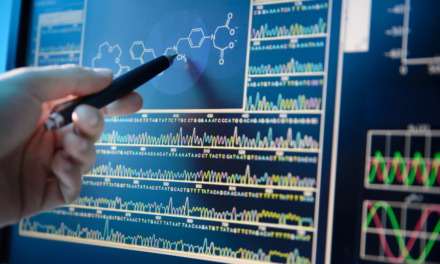Artificial Intelligence (AI) is a branch of computer science that focuses on the development of intelligent machines that can perform tasks that typically require human intelligence. AI algorithms and systems are designed to perform tasks such as natural language processing, image recognition, decision-making, and problem-solving.
AI technology is used in a wide range of applications, including autonomous vehicles, chatbots, voice assistants, predictive analytics, fraud detection, and healthcare. AI systems use machine learning algorithms to learn from data and improve their performance over time.
There are several types of AI, including:
- Narrow AI: Also known as Weak AI, narrow AI is designed to perform specific tasks such as language translation, speech recognition, and image classification.
- General AI: Also known as Strong AI, general AI is designed to perform any intellectual task that a human can do.
- Artificial Superintelligence: This refers to an AI system that surpasses human intelligence and is capable of solving problems that humans cannot.
AI is a rapidly growing field, and there are several tools and technologies available for developers to build AI applications. Some popular AI tools include Python, TensorFlow, PyTorch, and Keras.
1. R Programming Course A-Z™: R For Data Science With Real Exercises
R Programming Course A-Z™: R For Data Science With Real Exercises is an online course offered on Udemy that provides a comprehensive introduction to R programming for data science. The course is designed for individuals who have no prior experience with R programming and want to learn how to use R for data analysis and visualization.
The course covers the following topics:
- Introduction to R: This section covers the basics of R programming, including data types, control structures, functions, and data manipulation.
- Data Visualization: This section covers data visualization techniques using R, including histograms, scatterplots, and line charts.
- Data Analysis: This section covers data analysis techniques using R, including exploratory data analysis, data cleaning, and data transformation.
- Statistical Analysis: This section covers statistical analysis techniques using R, including hypothesis testing, regression analysis, and ANOVA.
- Machine Learning: This section covers machine learning algorithms in R, including decision trees, k-means clustering, and neural networks.
The course includes video lectures, quizzes, and hands-on exercises to help learners apply their knowledge to real-world problems. Learners also have access to a community of learners and instructors to interact and share ideas.
The course is taught by experienced instructors and practitioners in the field of data science and R programming. Upon completion of the course, learners receive a certificate of completion from Udemy. The course is highly recommended for individuals who want to learn R programming for data science and machine learning.
Key Highlights
- Create visualizations to best capture your analysis and captivate your audience
- Learn to solve real life analytical challenges
- Learn how to customize R studio to suit your preferences
- Learn how to create and use vectors and matrices in R
- Learn how to install packages in R
- Practice working with financial, statistical and sports data in R
- Know all about Normal distribution and Law of Large Numbers
- Homework exercises for extra practice
Duration : 10.5 hours on-demand video
Rating : 4.6
Sign up Here
2. Data Science and Machine Learning Bootcamp with R (Udemy)

The Data Science and Machine Learning Bootcamp with R is an online course offered on Udemy that provides a comprehensive introduction to data science and machine learning with R. The course is designed for individuals who have some basic knowledge of programming and statistics and want to learn how to use R for data analysis and machine learning.
The course covers the following topics:
- Introduction to Data Science: This section covers the basics of data science, including data types, data structures, and data manipulation.
- Exploratory Data Analysis: This section covers exploratory data analysis techniques using R, including data cleaning, data transformation, and data visualization.
- Statistical Inference: This section covers statistical inference techniques using R, including hypothesis testing, confidence intervals, and regression analysis.
- Machine Learning: This section covers machine learning algorithms in R, including decision trees, k-nearest neighbors, support vector machines, and neural networks.
- Data Mining: This section covers data mining techniques using R, including association rule mining, clustering, and text mining.
The course includes video lectures, quizzes, and hands-on exercises to help learners apply their knowledge to real-world problems. Learners also have access to a community of learners and instructors to interact and share ideas.
The course is taught by experienced instructors and practitioners in the field of data science and machine learning. Upon completion of the course, learners receive a certificate of completion from Udemy. The course is highly recommended for individuals who want to develop their skills in data science and machine learning with R.
Key Highlights
- Create Data Visualizations
- Use R to manipulate data easily
- Use R to handle csv, excel, SQL files or web scraping
- Learn machine learning algorithms including topics like Linear regression, Logistic regression and more advanced topics such as decision tress, random forests and support vector machines
- Variety of R programming exercises, capstone projects and Machine Learning portfolio projects
- Access to online Q&A forum
- Explore data mining of Twitter for tending topics and creating a word cloud of these topics
Duration : 17.5 hours on-demand video
Rating : 4.6
Sign up Here
3. Programming for Data Science with R Nanodegree Program (Udacity)

The Programming for Data Science with R Nanodegree Program is an online program offered by Udacity that provides a comprehensive introduction to data science programming using R. The program is designed for individuals who have some programming experience and want to learn how to use R for data analysis, visualization, and machine learning.
The program covers the following topics:
- Introduction to Data Science: This section covers the basics of data science, including data types, data structures, and data manipulation.
- Data Wrangling: This section covers data cleaning, data transformation, and data manipulation techniques using R.
- Exploratory Data Analysis: This section covers exploratory data analysis techniques using R, including data visualization and statistical analysis.
- Data Visualization: This section covers data visualization techniques using R, including histograms, scatterplots, and line charts.
- Machine Learning: This section covers machine learning algorithms in R, including decision trees, k-nearest neighbors, support vector machines, and neural networks.
The program includes video lectures, quizzes, and hands-on projects to help learners apply their knowledge to real-world problems. Learners also have access to a community of learners and mentors to interact and share ideas.
The program is taught by experienced instructors and practitioners in the field of data science and R programming. Upon completion of the program, learners receive a certificate of completion from Udacity. The program is highly recommended for individuals who want to develop their skills in data science programming using R.
n
Key Highlights
- Learn the most important programming languages (R and SQL) used by the data scientists
- Learn to make beautiful visualizations using the ggplot2 library
- Use the popular diamonds dataset to put your R skills to work
- Industry relevant projects to gain hands-on experience
- Personalized feedback on projects from network of 900+ project reviewers
- Get access to student hub to connect with fellow learners
- Get access to technical mentor support and career support services
- No prior experience requirement to enrol for the program
Duration : 3 months, 10 hours per week
Rating : 4.5
Sign up Here
4. Data Science: R Basics Certificate by Harvard University (edX)

The Data Science: R Basics Certificate is an online course offered by Harvard University on edX platform that provides an introduction to data science programming using R. The course is designed for beginners who have no prior programming experience and want to learn how to use R for data analysis and visualization.
The course covers the following topics:
- Introduction to R: This section covers the basics of R programming, including data types, data structures, and data manipulation.
- Data Visualization: This section covers data visualization techniques using R, including histograms, scatterplots, and line charts.
- Probability and Statistics: This section covers probability theory and statistical analysis techniques using R, including hypothesis testing, confidence intervals, and regression analysis.
- Linear Regression: This section covers linear regression analysis using R.
The course includes video lectures, quizzes, and hands-on exercises to help learners apply their knowledge to real-world problems. Learners also have access to a community of learners and instructors to interact and share ideas.
The course is taught by experienced instructors and practitioners in the field of data science and R programming. Upon completion of the course, learners receive a certificate of completion from Harvard University. The course is highly recommended for individuals who want to develop their skills in data science programming using R.
Regenerate response
.Key Highlights
- Build a strong foundation to prepare for more in-depth courses
- Learn data wrangling with dplyr, data visualization with ggplot2, file organization with UNIX/Linux, version control with git and GitHub and reproducible document preparation with RStudio
- Learn to perform operations in R including sorting and making plots
- Learn to solve problems using real life dataset
Duration : 8 weeks, 1 to 2 hours per week
Rating : 4.6
Sign up Here
5. R Programming: Advanced Analytics In R For Data Science (Udemy)

The R Programming: Advanced Analytics in R for Data Science is an online course offered by Udemy that provides a comprehensive introduction to advanced data analytics techniques using R. The course is designed for individuals who have some programming experience and want to learn how to use R for data analysis, visualization, and machine learning.
The course covers the following topics:
- Introduction to Advanced Analytics: This section covers the basics of advanced analytics, including clustering, decision trees, and time series analysis.
- Machine Learning: This section covers machine learning algorithms in R, including decision trees, k-nearest neighbors, support vector machines, and neural networks.
- Natural Language Processing: This section covers natural language processing techniques using R, including text classification and sentiment analysis.
- Social Network Analysis: This section covers social network analysis techniques using R, including centrality measures and community detection.
The course includes video lectures, quizzes, and hands-on projects to help learners apply their knowledge to real-world problems. Learners also have access to a community of learners and mentors to interact and share ideas.
The course is taught by experienced instructors and practitioners in the field of data science and R programming. Upon completion of the course, learners receive a certificate of completion from Udemy. The course is highly recommended for individuals who want to develop their skills in advanced data analytics using R.
Key Highlights
- Advanced level course for those who want to dive deep in R
- Professional R Video training
- Unique datasets designed with years of industry experience in mind
- Learn to create a timeseries plot in R
- Understand how the Apply family of functions works
- Locate missing data in your dataframes
- Learn to apply Factual Analysis method, Median Imputation method to replace missing records
- Engaging exercises to help correlate analytics in the real world
Duration : 6 hours on-demand video
Rating : 4.7
Sign up Here
6. Mastering Software Development in R Certification by Johns Hopkins University (Coursera)

The Mastering Software Development in R Certification is an online course offered by Johns Hopkins University on the Coursera platform. The course is designed for individuals who have experience with R programming and want to develop their skills in software development using R.
The course covers the following topics:
- Object-Oriented Programming: This section covers the principles of object-oriented programming in R, including classes, methods, and inheritance.
- Building R Packages: This section covers the process of building R packages, including package structure, documentation, and testing.
- Version Control with Git and GitHub: This section covers version control techniques using Git and GitHub, including branching and merging.
- Building Data Applications: This section covers the process of building data applications using R, including web applications and Shiny applications.
The course includes video lectures, quizzes, and hands-on projects to help learners apply their knowledge to real-world problems. Learners also have access to a community of learners and mentors to interact and share ideas.
The course is taught by experienced instructors and practitioners in the field of data science and software development. Upon completion of the course, learners receive a certificate of completion from Johns Hopkins University. The course is highly recommended for individuals who want to develop their skills in software development using R.
Key Highlights
- Gain fluency at the R console
- Be able to create tidy datasets from a wide range of possible data sources
- Learn to define new data types in R and develop a universe of functionality specific to those data types
- Learn how to distribute packages via CRAN and GitHub
- Create new visualization building blocks using the ggplot2 framework
Duration : Flexible
Rating : 4.4
Sign up Here
7. Learning R (LinkedIn Learning – Lynda)

Learning R is an online course offered by LinkedIn Learning, formerly known as Lynda.com. The course is designed to provide a comprehensive introduction to R programming for beginners who have no prior experience with the language.
The course covers the following topics:
- Introduction to R: This section covers the basics of R programming, including data types, data structures, functions, and control structures.
- Working with Data: This section covers how to import, manipulate, and visualize data in R, including data frames, factors, and ggplot2.
- Statistics with R: This section covers basic statistical analysis techniques using R, including descriptive statistics, probability distributions, hypothesis testing, and linear regression.
- Advanced Topics: This section covers advanced topics in R programming, including working with large datasets, text mining, and machine learning.
The course includes video lectures, quizzes, and hands-on exercises to help learners apply their knowledge to real-world problems. Learners also have access to a community of learners and mentors to interact and share ideas.
The course is taught by experienced instructors and practitioners in the field of data science and R programming. Upon completion of the course, learners receive a certificate of completion from LinkedIn Learning. The course is highly recommended for individuals who want to learn R programming from scratch.
Key Highlights
- Learn to use charts, such as histograms, bar charts, scatter plots, and box plots, to get the big picture of your data
- Learn descriptive statistics such as means, standard deviations, and correlations for a more precise depiction
- Learn inferential statistics like regression, t-tests, the analysis of variance, and the chi-square test to determine the reliability of your results
- Learn to create beautiful presentation charts to share your analysis results
- Several engaging exercises available with data sets which can be downloaded
- View Offline mode allows learners to download courses on mobile devices and watch them on the go without an internet connection
Duration : 2 hours 25 minutes
Rating : 4.6
Sign up Here
8. R Programming for Statistics and Data Science (Udemy)

R Programming for Statistics and Data Science is an online course offered by Udemy. The course is designed to provide a comprehensive introduction to R programming for individuals who want to apply it to statistical analysis and data science.
The course covers the following topics:
- Introduction to R: This section covers the basics of R programming, including data types, data structures, functions, and control structures.
- Data Manipulation: This section covers how to import, clean, and transform data in R, including data frames, factors, and dplyr.
- Data Visualization: This section covers how to create static and interactive visualizations in R using ggplot2 and plotly.
- Statistical Analysis: This section covers basic statistical analysis techniques using R, including descriptive statistics, probability distributions, hypothesis testing, and linear regression.
- Machine Learning: This section covers machine learning techniques using R, including decision trees, random forests, and support vector machines.
The course includes video lectures, quizzes, and hands-on exercises to help learners apply their knowledge to real-world problems. Learners also have access to a community of learners and mentors to interact and share ideas.
The course is taught by experienced instructors and practitioners in the field of data science and R programming. Upon completion of the course, learners receive a certificate of completion from Udemy. The course is highly recommended for individuals who want to apply R programming to statistical analysis and data science.
Key Highlights
- Learn descriptive statistics and fundamentals of inferential statistics
- Master confidence intervals and hypothesis testing, as well as regression and cluster analysis
- Learn to work with vectors, matrices, data frames, and lists
- Become adept in ‘the Tidyverse package’ enabling you to index and subset data
- Learn the grammar of graphics and the ggplot2 package
- Learn how to visualise data – plot different types of data & draw insights
- Learn complete skill set to tackle a new Data Science project
- Learn to make decisions that are supported by the data
Duration : 6.5 hours on-demand video
Rating : 4.5
Sign up Here


![Top 10 Artificial Intelligence Courses, Certifications & Classes Online [2023]](https://onlinecoursespace.com/wp-content/uploads/2023/03/onlinecoursespace-5-440x264.png)


